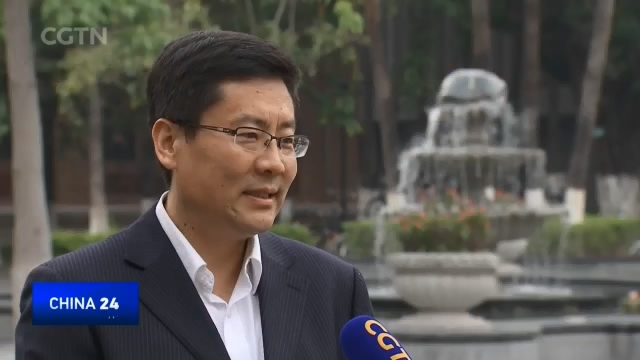
20:45, 18-Apr-2018
US Ban on ZTE: Expert: This is a lose-lose scenario, China should develop its own chips
01:45

One expert says the ban on ZTE will lead to a lose-lose situation for companies in both countries, but that also gives China the opportunity to realize the importance of developing its own chips. CGTN's He Weiwei has more.
XUE QUAN, DEAN SCHOOL OF ELECTRONIC & INFORMATION ENGINEERING SOUTH CHINA UNIVERSITY OF TECHNOLOGY "I believe this ban is part of the China-US trade frictions, but it's too early to say whether it's an escalation. This denial order is a huge blow to ZTE, but it's also a disaster for many American companies in the upstream industrial chain. It's a lose-lose situation for both sides."
ZTE is a leading telecom giant in China, especially in the 5G industry. It's reported that 20 to 30 percent of components used in the company's devices are supplied from the US.
HE WEIWEI GUANGZHOU "In early April in Guangzhou, ZTE announced its success in making China's first 5G phone call. The move came as a milestone in the country's telecom industry. But now the US ban raises concerns over its impact on China's plan to commercialize 5G technology by 2020."
XUE QUAN, DEAN SCHOOL OF ELECTRONIC & INFORMATION ENGINEERING SOUTH CHINA UNIVERSITY OF TECHNOLOGY "One thing that's particularly clear is that the US is adopting a stifling attitude and policy towards the ever-growing manufacturing and technology industries in China."
Professor Xue also believes that this ban will force Chinese companies to accelerate their development of self-made chips. It takes time, talent and money, but that's the future direction for China's telecom industry. HWW, CGTN, GZ.

SITEMAP
Copyright © 2018 CGTN. Beijing ICP prepared NO.16065310-3
Copyright © 2018 CGTN. Beijing ICP prepared NO.16065310-3